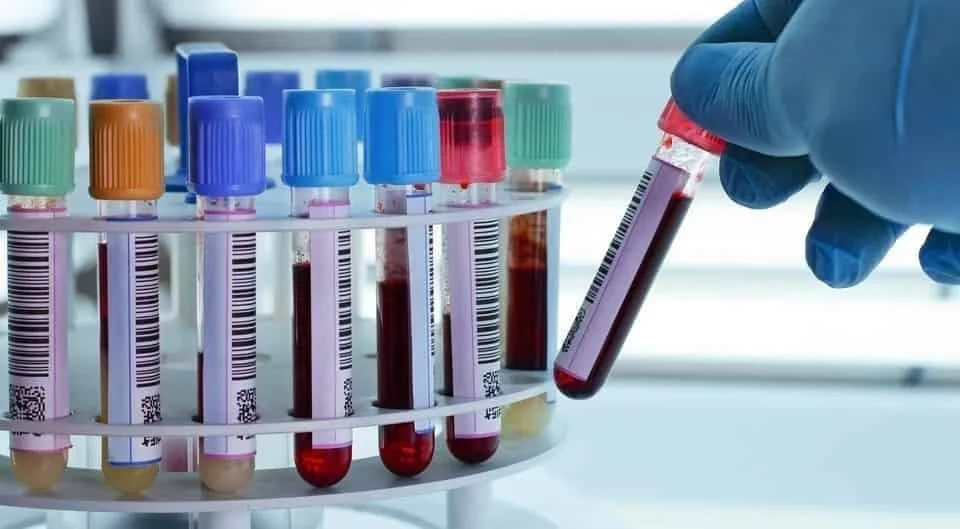
Understanding the Frozen Section Procedure: A Closer Look at Intraoperative Pathology
The Frozen Section Procedure is a diagnostic test used predominantly in surgical pathology to provide a rapid microscopic specimen analysis during surgery. This technique plays a crucial role in guiding
The Frozen Section Procedure is a diagnostic test used predominantly in surgical pathology to provide a rapid microscopic specimen analysis during surgery. This technique plays a crucial role in guiding surgeons to make immediate decisions about the extent of surgery needed based on the presence or absence of disease. The procedure is named "frozen" because the tissue sample is quickly frozen, which allows thin sections to be cut and examined under a microscope.
Why it’s done-
The primary reason for performing a frozen section analysis is to provide immediate diagnostic information that can influence the course of surgery. Here are some of the critical situations in which it is employed:
Cancer Surgery: While removing a tumor, surgeons must ensure they have excised all cancerous tissue while preserving as much healthy tissue as possible. Frozen section analysis helps determine if the edges (margins) of the removed tissue are free of cancer cells, indicating that the tumor has been completely excised.
Determination of Tissue Type: In some cases, the nature of the lesion or mass is unclear before surgery. A frozen section can help determine whether the tissue is benign or malignant, aiding the surgeon in deciding the extent of surgery needed.
Sentinel Lymph Node Biopsy: In certain cancers, such as breast cancer, a sentinel lymph node biopsy is performed to check if the cancer has spread to the lymph nodes. A frozen section of the sentinel lymph node can provide quick information about the presence of cancer cells.
Surgery Procedure -
The frozen section begins when a surgeon identifies a tissue of interest during surgery and requires immediate pathological examination. The tissue sample is quickly sent to the pathology lab, undergoing a rapid freezing process. This is achieved using compounds like liquid nitrogen or a cryostat machine, freeing the tissue solid enough to be sliced into fragile sections.
These thin sections are then mounted on slides, stained with dyes to highlight different cell structures, and examined under a microscope by a pathologist. The entire process, from the receipt of the specimen to the delivery of results, can be accomplished in approximately 20 to 30 minutes, providing vital information without significant interruption to the ongoing surgery.
Applications -
The primary application of the frozen section procedure is in oncologic surgery, where it helps in determining the nature of a tumor - benign or malignant - and the margins of the tumor. If the margins are clear of cancer cells, the surgeon may conclude the procedure, knowing the tumor has been entirely excised. If cancer cells are found at the edges of the specimen, additional tissue may be removed during the same surgical session.
Apart from oncology, frozen section analysis is used in various other surgical contexts, such as organ transplant surgery, to assess the viability of the donor organ or in endocrine surgery to examine parathyroid glands or thyroid nodules.
Risk and Complications -
While the Frozen Section Procedure is invaluable, it is not without risks and complications. These include:
False Negatives/Positives: The possibility of misdiagnosis, although rare, can lead to inadequate removal of diseased tissue or unnecessary removal of healthy tissue.
Sampling Error: The small sample size may not represent the overall nature of the disease, leading to incorrect conclusions.
Technical Limitations: The quality of frozen sections may not match that of permanently processed tissues, potentially affecting the diagnosis accuracy.
Advantages and Limitations
The frozen section procedure offers the significant advantage of immediate results, which can be crucial in surgical decision-making. It allows for real-time adjusting of surgical plans, potentially sparing patients from additional surgeries. However, it has limitations. Rapidly freezing can sometimes distort the tissue architecture, making interpretation challenging. Additionally, not all tissue types are suitable for frozen section analysis, and in some cases, a more thorough examination using traditional methods may be necessary after surgery.
At Medipulse Hospital, Jodhpur, integrating the frozen section procedure into our surgical pathology services underscores our commitment to providing state-of-the-art care. Our dedicated team of pathologists and surgeons collaborates closely, utilizing this rapid diagnostic tool to ensure precise and timely surgical interventions. The availability of frozen section analysis at Medipulse Hospital enhances our ability to make intraoperative decisions that are informed, patient-centric, and tailored to achieve the best possible outcomes. This reflects our overarching mission to blend innovative medical practices with compassionate care, ensuring every patient receives the highest standard of treatment. For more information about Frozen section, visit the hospital’s website or can contact on 8239345635.
How to choose a pathology lab
A pathology lab is a medical laboratory in which different types of tests are conducted by taking samples of blood and urine, including different types of cells and tissues. It helps in the detection of the disease
A pathology lab is a medical laboratory in which different types of tests are conducted by taking samples of blood and urine, including different types of cells and tissues. It helps in the detection of the disease inside the body of the person so that the appropriate diagnosis can be initiated. It is one of the most critical processes with the help of which the individual can be positioned to secure a better position over time.
The importance of these kinds of Laboratories has increased domestically over the period because they have been able to enhance the role of Medical Science in achieving the proper diagnosis of the individual. It is the first step of disease detection and plays a valuable role in the effortless analysis of the same. It is essential to understand that there is an increase in the number of Pathology labs that are operative for the time being. How the best pathology lab can be chosen has been given the following way. It is only with a detailed analysis that this object could be achieved easily.
Experience and legacy of the lab
One of the first steps that must be taken into consideration for choosing a pathology lab is the experience of all the people working there. If the laboratory staff members are experienced enough, then they can automatically provide a surety to the individual that everything will be fine by then. It is also essential to understand that the medical staff must have enough experience in taking the samples correctly before it is too late.
Type of medical infrastructure
The medical staff must be competent enough to operate medical infrastructure. Operation of medical infrastructure is essential because if all the equipment and the machines are not present, then all the testing cannot be done. If all the testing cannot be done automatically, visiting a particular lab would be no point. This is one of the most crucial aspects that must be remembered over time. It is even helpful to understand that medical infrastructure is required for the Holistic treatment of the individual.
Accuracy of the reports
Developing the correct report of the individual after the medical analysis is essential and Critical for the successful functioning of a pathology lab. If the lab cannot operate properly, then the accuracy is at stake. This is useful in the long run over some time to focus on various tangents. It is also essential to understand that nobody would come to the pathology lab if the report is not correctly generated. This is considered one of the essential features that must be remembered at almost every cost.
Customer service
The type of customer service a given pathology lab offers also determines whether the individual must go back to get the service. If the type of service is good enough to achieve a given target, it can be used in the long run. But if the kind of customer handling is not up to the mark, then definitely there is no point in visiting the laboratory again.
Conclusion
It can be concluded that this is one of the most effective types of steps that must be taken into consideration while selecting the pathology lab for tests. The results provided by these labs are taken into consideration for further treatment of a patient, any discrepancy with these reports may lead to a negative impact on the treatment. Therefore, one must always consult professional and reliable labs for any tests., you can also visit Medipulse Hospital for a reliable tests.
All you need to know about Dengue testing in Jodhpur
Dengue is a type of viral disease that comes from mosquito bites. It is a common disease in India, and almost 100,000 people suffer from dengue in India every year. Dengue causes fever, and the fever can be of four types.
Dengue is a type of viral disease that comes from mosquito bites. It is a common disease in India, and almost 100,000 people suffer from dengue in India every year. Dengue causes fever, and the fever can be of four types. If you have any of the four types of dengue fever, you become immune to that dengue fever for all your life, but your immunity to the other types of dengue fever remains only for a few months. If a person is affected by dengue a second time within a short span of time, it can have deadly consequences such as hemorrhage or shock. Every year hundreds if not thousands of people die from this disease. Testing yourself against dengue is crucial if you find yourself matching any of the symptoms. Here is a list of some of the common symptoms of dengue.
Common Symptoms of Dengue
High Fever
Headache
Rash
Joint Pains
Severe Bleeding (rare)
Shock (very rare and severe)
If you have any of the above symptoms for an extended period, you need to be tested for dengue immediately. Even if you have a fever and your locality has recently had cases of dengue, you need to be tested for dengue as well. Here is all that you need to know about dengue testing.
All You Need To Know About Dengue Testing
There are various tests that doctors might advise if they suspect you have dengue. These tests include
NS1 Dengue Antigen Test
The NS1 Antigen test is used to detect the dengue virus in your system in the early stages. The NS1 Antigen test is used to test your body for the dengue virus within the first 5-7 days since your first symptoms appear. If this test is done any later, that could lead to false-positive or false-negative reports, which could endanger your condition. The NS1 test report can be received within 1 day, and it is also cheaper than most other dengue tests.
Dengue RNA PCR Test
The RNA PCR test is a preliminary test for detecting the dengue virus in your system. This test is conducted in the early course of your dengue infection. This test needs to be completed within five days of your illness, which improves the accuracy of this test. In general, the RNA PCR test for dengue has a sensitivity of 90 - 95%. The results for this test can be received within five days of testing. This type of test can only be done in select laboratories.
Conclusion
Dengue is a serious problem as it affects a number of people in Jodhpur every year. If you or your loved ones are searching for Dengue testing in Jodhpur, make sure to get it done from a reliable name. You can find accurate and easy testing for the dengue virus at Medipulse hospital in Jodhpur. The hospital is capable of testing hundreds of people daily with accurate and quick results. If your patient has dengue, Medipulse hospital has the best medical care available for them 24/7.






